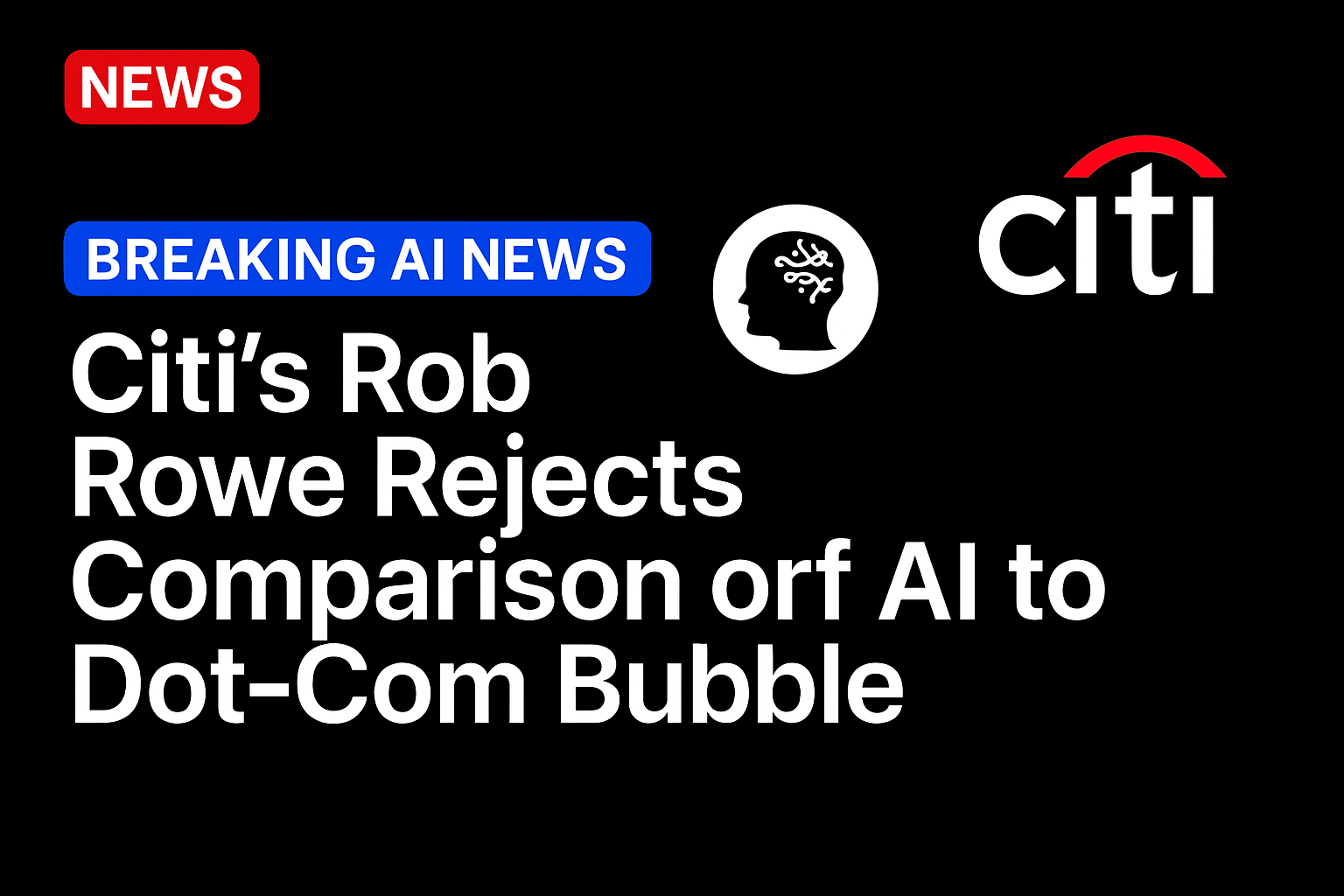The adoption of artificial intelligence (AI) may go slower than some expect, as was the case with the internet around 2000, but in the meantime AI players are making money, Citi Managing Director Rob Rowe said Monday (Aug. 18).
Interviewed by CNBC, Rowe said that the adoption rate of AI may draw comparisons to the early internet but that AI companies are valued fairly well versus growth, their cash flows are very strong, and most of their capital expenditures on AI infrastructure are funded by cash.
Asked if he is a fan of comparisons of the current AI situation to the dot-com bubble in 1998 and 1999, Rowe said: “Not as much, because back then you had a lot of over-leveraged situations, you didn’t have a lot of companies that had earnings. Here, you’re talking about companies that have very solid earnings, very strong cash flow, and they’re funding a lot of this growth through that cash flow, so in many respects it’s a little different than then.”
These comments came on the same day it was reported that UBS Global Research strategists advised investors looking at the AI industry to keep an eye on overheating risk and the health of the asset class.
UBS strategists wrote in a Monday note that private credit lenders are becoming an important source of capital for the AI industry and that the demand for this capital is being driven by tech companies’ spending on AI data center construction and other AI development costs.
“This phenomenon could sustain significant growth plans for AI and other hyperscaler companies, sowing the seeds of an upside scenario and increasing overheating risk,” the UBS strategists led by Matthew Mish wrote in the note.
Also on Monday, CNBC flagged OpenAI CEO Sam Altman’s comments to The Verge in which he said the AI market is in a bubble. CNBC said that in raising concerns about the speed of AI growth, Altman joined the likes of Alibaba Co-Founder Joe Tsai, Bridgewater Associates’ Ray Dalio and Apollo Global Management Chief Economist Torsten Slok.
Altman told The Verge: “If you look at most of the bubbles in history, like the tech bubble, there was a real thing. Tech was really important. The internet was a really big deal. People got overexcited. Are we in a phase where investors as a whole are overexcited about AI? My opinion is yes. Is AI the most important thing to happen in a very long time? My opinion is also yes.”
Source: https://www.pymnts.com/

